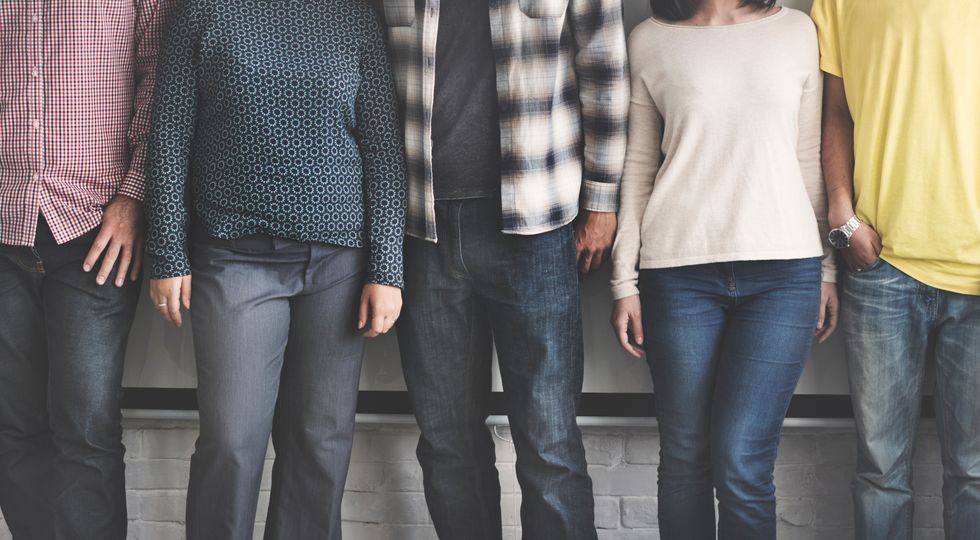Intersectionality is a theory that focuses on how our multiple identities overlap with one another and how different power structures interact with this unique overlap. When law professor Kimberlé Crenshaw coined the term in the 1980s, she was mostly interested in looking at how the intersecting identities of black women were affected by institutionalized discrimination; today, however, intersectionality focuses on all kinds of marginalized identities and the challenges they face.
This theory is something that we can apply to our own lives in order to better understand how our experiences shape our identity and how our identity shapes our experiences. Understanding how intersectionality plays into our lives is obviously a very self-reflexive process, one that is always ongoing because the different aspects of our identity are constantly growing.
This process is so important, especially because it affects the way that we navigate society as individuals and as members of our unique communities.
I decided to enter into this discussion of intersectionality because my therapist was interested in having me take time to pause and consider how my own marginalized identities influence the way that society perceives and treats me, which ultimately impacts my life. I am nonbinary, queer, female-presenting, and have mental illnesses, and all of these aspects of myself are ones that society as a whole does not treat kindly at all.
Being a member of the LGBTQ+ community is something that, unfortunately, is still condemned all around the world; queer people are killed every day just for being queer. Because I am nonbinary and queer, I am an outsider of both the gender and sexuality binaries (yes, there is a sexuality binary of being gay or straight). While nonbinary and pansexual people like myself have always existed, these terms are fairly new, which means that people outside of (and also within) the queer community are resistant and critical to these “labels.”
I am not seen as an “established” member of the LGBT (not Q+ as that is a fairly new addition to the acronym) community and my gender and sexuality are “confusing” or “difficult to understand,” and that hurts.
My identity is largely disrespected and belittled by cisgender, straight people, the dominant gender and sexuality within society, which make it difficult to navigate and cope with the world. The weight of knowing that my identity faces so much hate and backlash can be crushing sometimes, but I try my best to work against this and utilize my voice, for both myself and those who don’t have this opportunity, to speak out about the problems society continues to allow to persist.
Being mentally ill comes with its own set of challenges. Stigmas about mentally ill people have survived since ancient history, where they were seen as being possessed by demons or punished for their actions. The history of medical treatment of mentally ill people is also extremely unsavory and was permitted to occur because of these beliefs. Within the U.S. Today, that all has translated into a lack of outreach and resources for the mentally ill community, as well as mentally ill people being seen as “crazy,” “selfish,” “weak,” “violent,” “stupid,” “lazy,” and/or “faking it.”
However, this is often far from the case; mentally ill people are productive members of society, but these harmful stereotypes prevent us from living up to our full potential.
Mental illness is a huge challenge that the LGBTQ+ community faces, as well; LGBTQ+ people are up to three times more likely to develop depression and anxiety compared to straight, cisgender people, and that rate is even higher for trans and queer people of color (who also already face racism and xenophobia). There is a huge burden that mentally ill queer people face because our intersecting, marginalized identities are not accepted, and this very clearly impacts the ways in which we navigate certain social spaces. Identity is extremely personal and unique, and when you have multiple marginalized ones that overlap and create a very specific form of discrimination, it can be difficult to process.
I do love myself and my identities, and I wouldn’t change them for anything, but it isn’t easy having to face the subtle homophobia, heterosexism, and stigma against mental illnesses that all pervade throughout the institutions that govern every aspect of our lives.
Intersectionality allows for us to not only understand some of the prejudices we may face, but also some of the privileges we may hold based on our more “socially acceptable” identities. For example, I am white, so I am well aware of the advantages I gain from being a member of the socially dominant racial group, especially within the United States (living in the U.S. also comes with its privileges, too). What intersectionality aims to do is enlighten us, especially to the privileges we have and the prejudices others face, so that we can utilize our privilege, and therefore our power, to reflect upon the institutions that bar others and deconstruct them in order to build new systems that allow even the most isolated and condemned identities to succeed.
I am just beginning this extremely personal and thought-intensive journey to better comprehend the way I carry myself, but I feel that this is something that we should all undertake to better understand ourselves and others.






















